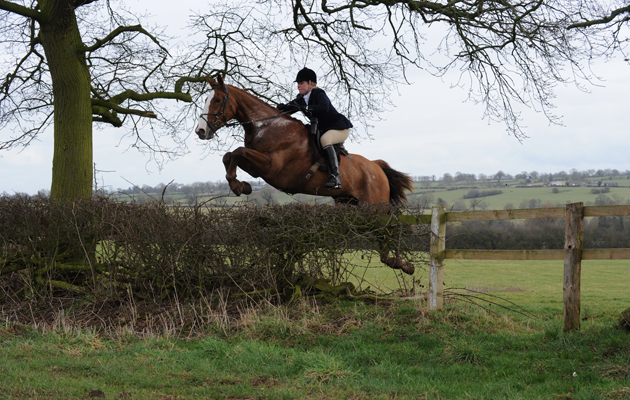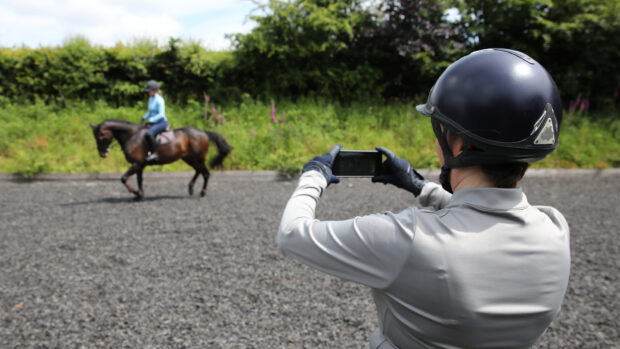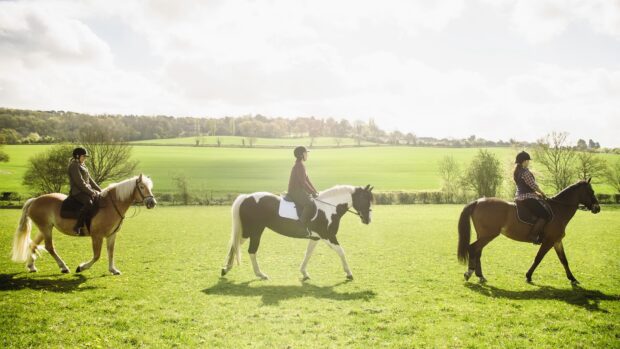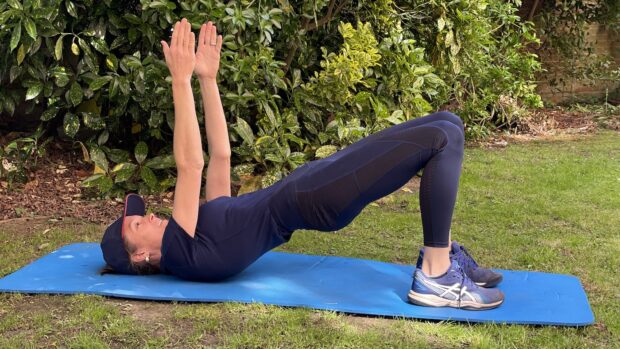Today (18 October) is World Menopause Day, so to mark the occasion, H&H has compiled some useful links to information and support, plus handy apps and podcasts.
Numerous horse riders have found their enjoyment of life and riding had been seriously affected by distressing symptoms, such as severe anxiety, mood swings, weight gain and physical pain – but had no idea at the time these were linked to perimenopause or menopause. Some reached the verge of giving up horses, for many their lifelong passion and source of exercise, and others had stopped riding altogether.
With females making up 51% of the UK population, menopause is a topic that would benefit from more open discussion within the equestrian community. And while not every woman, or trans or non-binary person, will suffer negatively, around 25% do experience serious symptoms. The links between menopause and decreased bone density is also something for riders to understand, especially given this is a risk sport.
H&H always recommends seeking professional medical advice on healthcare matters, and the below list is in no way an alternative to that.
Useful sources of menopause information
GP and menopause specialist Louise Newson has a library on her website, with factsheets, booklets and podcasts newsonhealth.co.uk/resources
Dr Newson also founded the Balance website and app, where women can track their symptoms and download a report. It also contains a vast library, plus advice for partners, businesses, and more at balance-menopause.com
For NHS advice on menopause, visit nhs.uk/conditions/menopause , hormone replacement therapy (HRT) nhs.uk/conditions/hormone-replacement-therapy-hrt and other treatments nhs.uk/conditions/hormone-replacement-therapy-hrt/alternatives
Diet and exercise
British Equestrian’s human physio and athlete health lead Ashleigh Wallace spoke to H&H about understanding what is happening to the body during perimenopause or menopause.
She says she sees riders enter a “vicious cycle”, by trying to counteract weight gain by eating less. That coupled with other symptoms such as reduction in strength and sleep disturbances, which mean people are not recovering properly, means it is no wonder some are exhausted.
She advises looking at diet, fuelling the body for what it needs, rather than starving, and eating plenty of leafy greens, “reds” such as berries, high-quality protein and omega-3s, plus enough sources of calcium.
She adds reducing inflammatory foods, such as crisps and fried foods, can be beneficial in reducing joint pain.
Incorporating off-horse high-intensity interval exercises that help promote bone density, like skipping, are important. This is because the drop in hormones that goes with menopause can lead to bone loss. For this reason, she also recommends taking vitamin D.
Prioritising recovery is also a must – something she recognises can be easier said than done, given the impact that menopause can have on sleep and riders’ busy schedules. The saying “train hard, recover harder” is pertinent and some find things like cherry juice and warm baths with magnesium salts can help.
She adds that HRT is a “different world” now compared to in the past, and is something riders can find out more about from a doctor. H&H also recommends speaking to a medical professional to bust myths, and to discuss the benefits and any associated risks, as with any treatments, to make an informed choice.
Clean sport
Riders are bound by World Anti-Doping Agency (WADA) rules when competing in national and international competitions, so it is key for competitors to know the status of any medications they are taking. It is also important to make your doctor aware that you are competing under WADA rules.
To check the status of your medication, visit www.globaldro.com/Home and it is possible to print or save a copy of the result for your records. The WADA list is updated annually, so it is a good idea to check each year. Alternatively, the full WADA list can also be found here www.wada-ama.org/en/prohibited-list
Therapeutic use exemptions (TUE) enable athletes to remain in compliance with WADA anti-doping rules, while taking medications they need for their health. But it is vital to go about seeking a TUE in the correct way.
British Equestrian has advice at britishequestrian.org.uk/competitors/human-anti-doping
And for international competitors, the FEI has a comprehensive guide here inside.fei.org/fei/cleansport/humans/tues
Other handy menopause links
Diane Danzebrink founded Menopause Support, a not for profit community interest company, to provide access to factual, evidence-based information and support. It provides private telephone and video consultations, as well as support and training for businesses, therapists and wellbeing professionals. Visit: menopausesupport.co.uk
Podcasts recommended by riders H&H spoke to included:
You might also be interested in:

Lack of information on menopause symptoms directly affecting riders: women speak out to empower others

Subscribe to Horse & Hound magazine today – and enjoy unlimited website access all year round

Why prioritising sleep could boost your results (and how to get more of it)
The well-being of our equine athletes might be our number one priority, but the power of a rider’s sleep for

H&H’s 12 days of fitness: Aching after your ride? Try these Pilates exercises for horse riders

Why focusing on your breathing could transform your riding
Horse & Hound magazine, out every Thursday, is packed with all the latest news and reports, as well as interviews, specials, nostalgia, vet and training advice. Find how you can enjoy the magazine delivered to your door every week, plus options to upgrade your subscription to access our online service that brings you breaking news and reports as well as other benefits.




